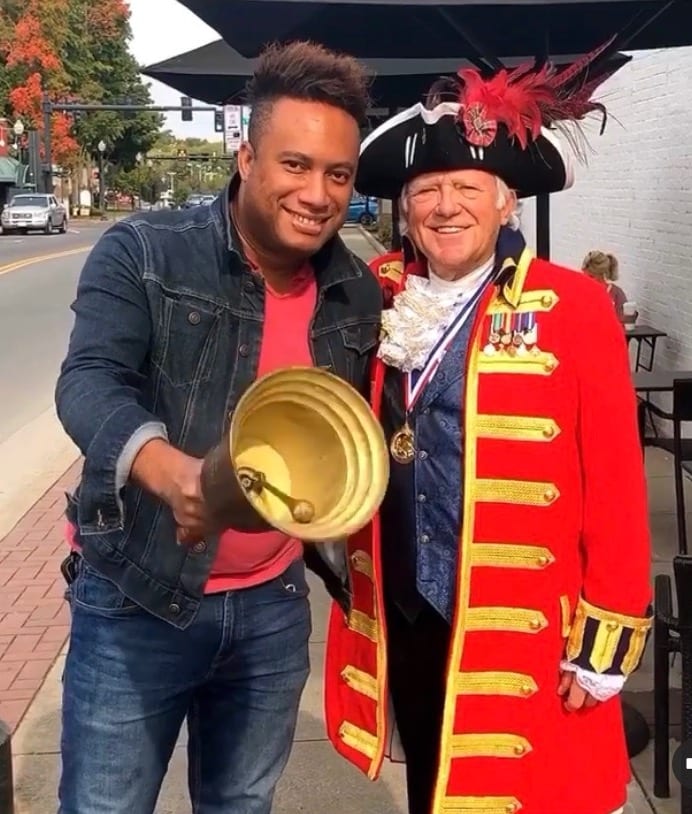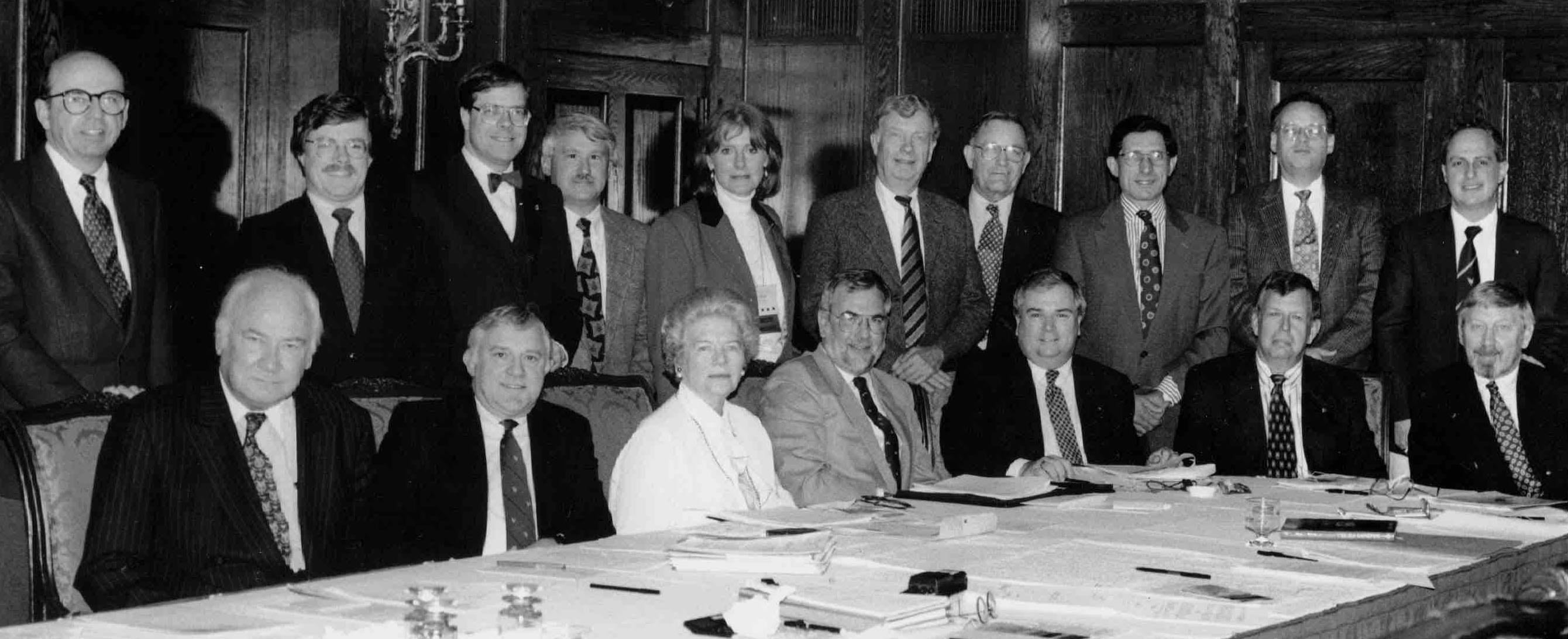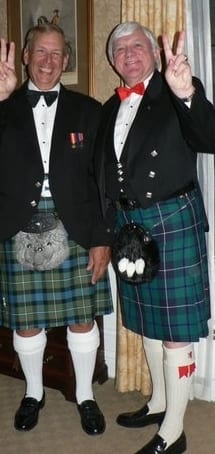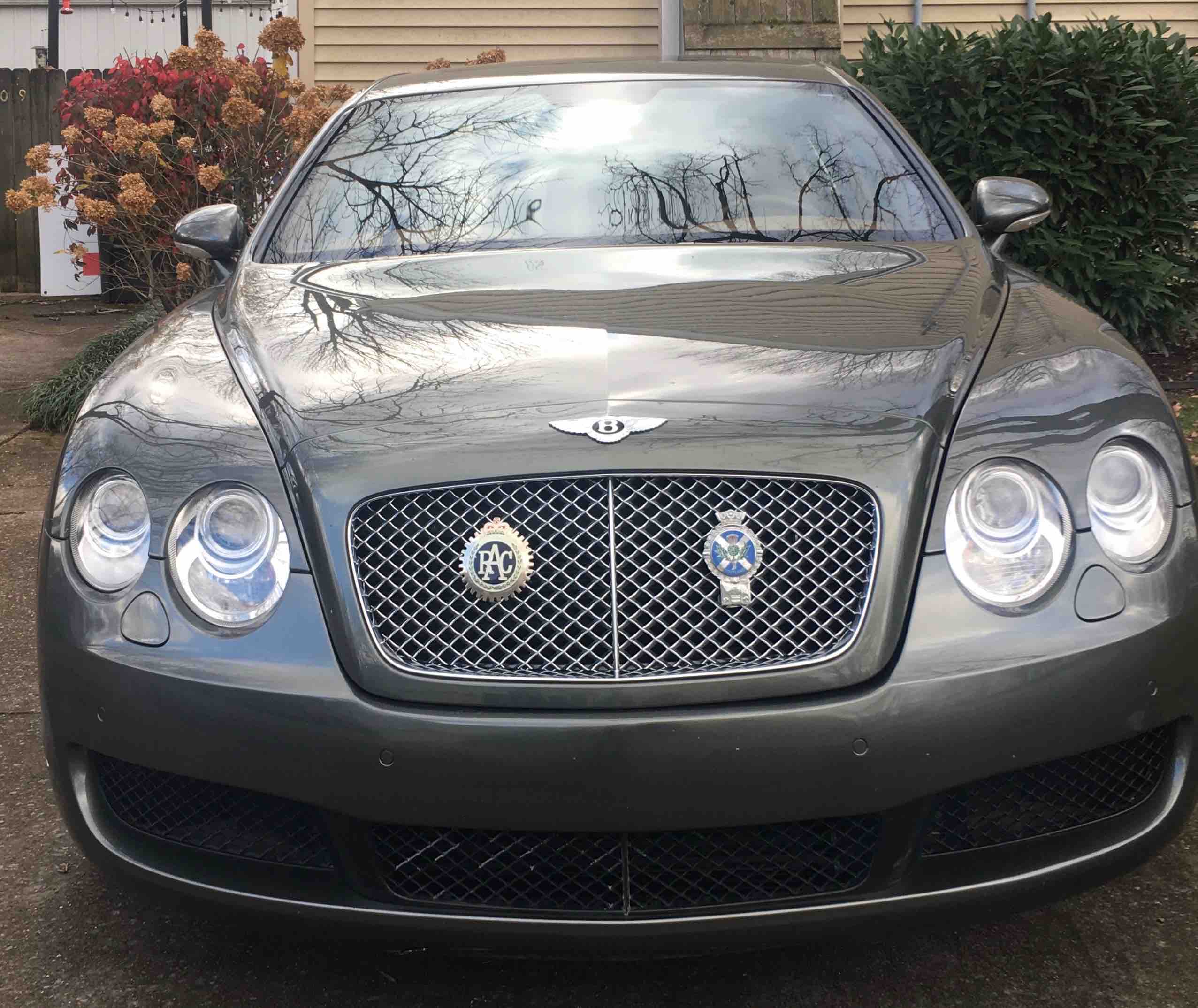
He Never Doubted Clouds Would Break: John H. Mather 1943-2020
“Why are you buying expensive pills over the counter?” asked Dr. John Mather. We were in an elevator during a 2001 Churchill Conference. “Don’t you have an honorable discharge from the Coast Guard?” He was then a Commander in the U.S. Public Health Service and Assistant Inspector General at the Veteran’s Administration. I’d never thought my four years with the USCG worthy of anything special, but I did have my DD-214. Mather said I was entitled: “We issue cheap pills.”
In the lift with us was Luce Churchill, married to Sir Winston’s grandson. Overhearing, she cracked: “They may even have pills that you two don’t think you need.” Hmm. At any rate, Dr. Mather sent me the forms, and I’ve been a satisfied VA customer ever since. It’s strange how you think of such odd snippets when a friend dies.
Life and times

Of Scottish heritage, John Mather was educated at John Lyon School, Harrow. There as Head Boy he met Sir Winston Churchill—something he always cherished. He studied medicine at Middlesex Hospital Medical School. In school he met his first wife Susan, moved to Maryland, and became an American citizen in 1975. In 2004 he retired after 30 years as a VA physician executive. Following a 2010 divorce he moved to Franklin, Tennessee, and subsequently married the psychiatrist Karen Rhea. Failing at retirement, he became an independent medical examiner.
John’s citations were vast. He was an Ordained Elder of the Presbyterian Church, a soccer coach and referee. In the U.S. Army Medical Corps he held the rank of Major and received the Army Commendation medal. A federal mediator and mentor, he held fellowships in the Academy of Otolaryngology and Head and Neck Surgery, the American Geriatrics Society and the Gerontological Society of America. He was Knight Commander of the Sovereign Military Order of the Temple of Jerusalem and Grand Chirurgeon for the Grand Priory of the USA. He belonged to the International Bow Tie Society, the Women in War Group, and was Franklin’s designated Town Crier. For International Clan Douglas he served as Tennessee Regent.
His loss was a shock. On December 5th John took himself to hospital with shortness of breath. They diagnosed atrial fibrillation and congestive heart failure. He was Mather to the end. “The doctor said he made them all laugh in the emergency room,” his daughter writes. “His ICU nurse noted his jovial demeanor.” That reminded me of Churchill, who wrote of his last sad encounter with the defeated French in 1940: “I displayed the smiling countenance and confident air which are thought suitable when things are very bad.”
Mather as Churchillian
We were colleagues for over a quarter century. We met over—who else?—Winston Spencer Churchill. John was a pathographer, specializing in Churchill’s medical history. He had deeply researched the subject, through the archives of Sir Winston’s doctors. In 1997 Dr. Mather revealed lengthy research destroying the long-running myth that Churchill’s father died of syphilis. Last year he revised and updated those findings for the Hillsdale College Churchill Project.
Sir Winston’s health was a touchy subject with his family, who believed in doctor-patient privacy. His personal physician, Lord Moran, was heavily criticized for publishing his “diaries” after Churchill’s death. Dr. Mather put off writing a book on the subject, in part for that reason. This didn’t prevent him from enthusiastically supporting Drs. Allister Vale and John Scadding, with their fine new book Winston Churchill’s Illnesses.

Laboring in the vineyard
John Mather joined the Churchill Society’s Board of Governors in the early 1990s. He was at Mary Soames’s right hand when we morphed into The Churchill Centre in 1995. Together we tackled a formidable task: a center for Churchill Studies, something we never quite realized—but we gave our all. We began raising an endowment, John at the forefront. Parker Lee, our executive director, proclaimed him our “super tanker” for funding more of it than most of us put together. He served the board as Secretary for a decade, organized numerous conferences and seminars. We gave him the Blenheim Award, our highest commendation for service. It was woefully inadequate.
John was keen also to promote Churchill interest locally. In Bowie, Maryland he founded and was the longtime president of the Washington Society for Churchill. In Franklin he organized the Churchill Society of Tennessee. I had the privilege to be invited to address both groups, and was impressed by their enthusiasm. To a man or woman, they credited their success to John.

Professor Warren Kimball remembers how in 2016-17, John organized “two imaginative programs on teaching Churchill for Franklin County high school teachers. He brought me and other historians to lecture and then conduct small seminar-like discussions.” (See Richard Knight, below.) When I joined the Hillsdale College Churchill Project in 2014, he was there to encourage and contribute—and wheedle Hillsdale scholars to come to Tennessee.
Always, triumphantly, “in touch”
Above all he cherished the memory of Churchill, whose words fit him well: He “strove to the utmost of his capacity and authority, which were powerful” … “The hopes he raised, the promises he made, the great support and honour he received from them, seemed to require of him strenuous exertions.” John was impatient with the sharks and grifters of this world, tackling every challenge with bulldog tenacity—even when friends urged him not to waste time on forlorn hopes. Again in Churchill’s words: “What were these hopes in which he was frustrated? They were surely among the most noble and benevolent instincts of the human heart.”
Messages from his friends echo each other. “I just talked with him yesterday”… “Saturday morning he sent me a text” … “He called only a few days ago.” Surely “all the trumpets sounded for him on the other side.”
Churchill wrote of T.E. Lawrence: “The summons which reached him, and for which he was equally prepared, was of a different order. It came as he would have wished it. swift and sudden on the wings of Speed. He had reached the Last Leap in his gallant course through life. ‘All is over! Fleet career. Dash of greyhound slipping thongs. Flight of falcon, bound of deer. Mad hoof-thunder in our rear. Cold air rushing up our lungs. Din of many tongues.’”*
His epitaph might be the one a great lady, Diana Cooper, penned to the noble figure John revered:
“One who never turned his back but marched breast forward,
“Never doubted clouds would break,
“Never dreamed, though right were worsted, wrong would triumph,
“Held we fall to rise, are baffled to fight better, Sleep to wake.”
“Here’s to John”: from the Old Guard
All below served on the old Board of Governors of The Churchill Centre or were advisors thereto.
I am heartsick. Three weeks ago, we together decided that the end of next May or early June, we would travel to Scotland and do as much of the Single Malt Scotch Whisky Trail that we could accomplish in a week. He left a message for us on Friday to call him and listen to all that he had put together. Sadly, I was away for most of the day and didn’t get the message until late Saturday. As with all of you, he was a treasured friend. But he had to buy a Bentley to one-up my Jaguar. —Randy Barber, Markham, Ontario
John called me a few days ago just to chat. He mentioned you several times and also told me about the new Bentley. Certainly he had medical situations this past year but didn’t mention any of them on the call. He sounded like his usual self. John Mather’s friendship and loyalty often translated into enthusiasm. Last year I advised him I had invited author Lynne Olson to speak at a new lecture series I had created at the University of Virginia. He immediately said he wanted to be there and made the 1100-mile trip from Franklin to Charlottesville and back. His support was so appreciated. His frequent calls were informative and entertaining on many levels. I will certainly miss him. —Parker H. Lee III, Richmond, Virginia
* * *

I just had a text from him Tuesday. He told me about a month ago that following through with a long ambition, he’d just bought a Bentley. What a shock. Very sad. He had so much energy. —Jacqueline Dean Witter, Redwood City, California
He has always been a loyal friend and a tireless worker with an incredible level of passion for everything, and I do mean everything. We are very sad to receive this news. —Craig Horn, Weddington, North Carolina
Our 2016 high school program attracted about 35 teachers over two days. In a surprise move, John invited them all to dinner, and I have the canceled check to prove it! The 2017 program was scaled back to one day and about 20 teachers. Speakers included Warren Kimball, James Muller, Douglas Russell and Chris Harmon. Bill Mott, a retired British Army command sergeant major, was there in full uniform to meet and greet and give the teachers something to remember. It was a memorable moment. —Richard H. Knight, Jr., Nashville, Tennessee
I am hugely shocked. He was a good friend, a fine man, and I shall miss him very much. I recall with great affection his ready smile and cheerfulness from so many of the conferences over the years. A Brit “over there,” he never lost his Englishness. —David Boler, Tonbridge, Kent
* * *
We met memorably in the early 1990s and my first Churchill tour and conference in England. Lunch was at Celia’s Sandys’ and I was seated between Julian Churchill and a Dr. Mather. Being new, I knew nothing about either, but shall never forget their conversation. John was explaining his theory, from studying medical records, that Lord Randolph Churchill’s death was not as reported. I was awestruck! We so enjoyed knowing and working with John over the years. I know my late husband Jerry is agreeing with me from above. —Judith (Kambestad) Shephard, Los Osos, California
Fare thee well, Dr. John. A proud Scot and proud American. An Old Boy at Harrow (though not the same school as WSC). A welcoming host. A generous friend. A rapid talker but a good listener. A man with sense of humor and the ear for anecdote. He was a tireless worker in the cause of keeping the Churchill memory green and the record accurate. Good-bye, old friend. —Judge Douglas S. Russell, Iowa City, Iowa
* * *
I met John Mather through the International Churchill Society. Judith and I often saw him at conferences. We have wonderful memories of times we spent with Warren Kimball, Douglas Russell, and John when he organized Churchill seminars for teachers in Franklin, Tennessee. John was a magnificent host. He cleaned snow off our rental car on a January morning that was colder in Franklin than in Anchorage. He was always upbeat, and we will never forget his enthusiasm. Whatever he did, he threw himself into it 110%. If he meets Winston Churchill in heaven, he’ll have home court advantage in getting answers to all his questions about the great man’s medical history. —James W. Muller, Anchorage, Alaska
John sometimes sounded like a one trick pony when it came to WSC’s medical history! But he was much more: an effervescent, indefatigable, delightful, generous, and persuasive promoter of Winston Spencer Churchill. Best of all he was a nice guy. No memorial should omit John’s personality and accomplishments. —Warren F. Kimball, John Island, South Carolina
____
*Churchill was quoting from “The Last Leap,” by Adam Lindsay Gordon (1833-1870)






